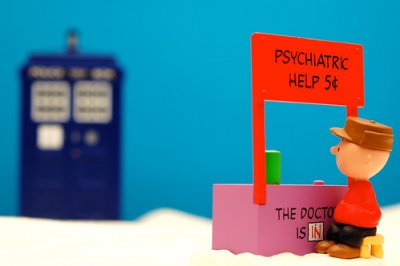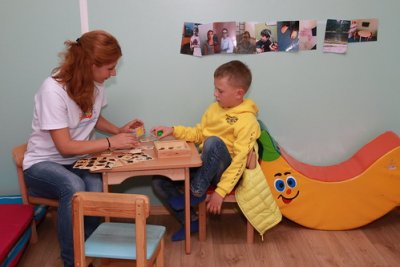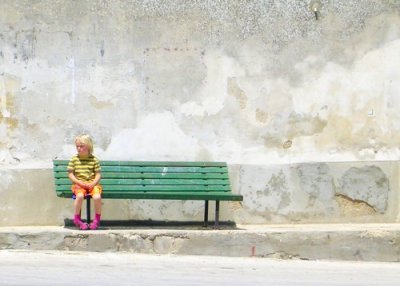ADD Symptoms in Children – Psychology or Psychiatry?
Yes, your child is struggling and you are ready to seek help. But should you trust a psychiatrist suggesting medication? Who else can diagnose ADD symptoms in children here in the UK?
ADD Symptoms in Children
First, let’s clear up some myths about attention deficit hyperactivity disorder (ADHD, or ADD) symptoms in children.
Your child does not have to be hyperactive all the time to receive an ADD diagnosis. This myth leads to many children, particularly girls, going undiagnosed.
There are now three main symptoms recognised as the markers of ADD. These are inattention, impulsivity, and hyperactivity. If your child has even one of these symptoms, to the point they suffer at school and socially, they might be diagnosed.
So while the classic example of an ADD/ ADHD child is one who is disruptive (impulsivity), always fidgeting, and talking a lot (hyperactivity)? The girl in the corner always staring out the window and dreaming (inattention) might also have ADHD.
Read more in our article, “ADHD in Children – Should You Be Concerned?”
Psychiatrist, Psychologist, or….?

By: JD Hancock
A psychiatrist is the only mental health practitioner in the UK who is also a medical doctor qualified to prescribe medication to adults.
And they are the ones who officially diagnose adult ADHD. For adults, the recommended treatment pathway is indeed medication.
But medication first is NOT the official guidance for child ADHD/ADD in the UK. In fact it is advised that children under five are not given medication.
Nor is just seeing a psychiatrist recommended (or a paediatrician, who can also prescribe mental health medication to children).
The guidelines for child ADHD diagnosis and treatment put out by NICE, the National Institute for Health and Care Excellence in the UK, clearly advise that teams are involved in a child’s diagnosis. It states, “Mental health services for children, young people and adults, and child health services, should form multidisciplinary specialist ADHD teams and/or clinics for children and young people, and separate teams and/or clinics for adults.’
So who can diagnose my child with ADHD symptoms?
So what sort of health professionals would be involved in a specialist ADHD team for children?
As well as a child psychiatrist, it can include:
- paediatricians
- GPs
- social workers
- SENCOs (special educational needs coordinator)
- educational psychologists.
The process of assessment will involve screening questionnaires, a full history of your child’s development, clinical observation and watching your child in the classroom (school observation).

By: UNHCR Ukraine
The official diagnosis of child ADHD is made by the child psychiatrist , paediatrician, or approved specialist ADHD CAMHS. (This stands for “children and adolescent mental health services practitioner”, often an educational psychologist.)
But the information gathered by your child’s team of practitioner’s helps decide the treatment pathway. For some children that might mean medication, but often it does not.
Are too many drugs prescribed to UK kids?
Unfortunately, with the cuts to public services in recent years, the United Kingdom has seen a rise in the “American way” of treating children with ADHD. Just drugs are offered, without any psychological intervention.
The Care Quality Commission reported a 50% rise in the prescription of drugs such as Ritalin between 2007 and 2012 alone.
In 2015 the Parliamentary Assembly of the European Council stepped in. They put out a report pushing for countries to “have a comprehensive approach to ADHD treatment, give priority to behavioural interventions and academic support for children with ADHD, and ensure that psycho-stimulants are used as a measure of last resort, and always in combination with other treatments.”
An article by the British Psychological Society (BPS), written by former chair of the Division of Educational Psychology (DECP), points to a similar concern. It takes issue with “the number of children being identified as suffering from ADHD and prescribed medication, often without sufficient consideration for systemic factors…. too many are being places on drug treatment programmes without any form of psychological support’.
The article goes on to point out that children living in adverse conditions often have ADHD behaviours as reactions to life stress rather than biology.
The BPS also consulted 136 education psychologists from 70 different local authorities. Their findings? Twenty-two per cent reported children under five being prescribed psycho stimulants against NICE advice.
How does an educational psychologist help?
Educational psychologists focus on looking at all the various factors that affect your child’s learning and development.
They don’t just assess ADD symptoms in children, they take a very comprehensive overview that includes looking at:
- emotional difficulties such as stress, anxiety, and depression
- your child’s overall medical health such as hearing and sight
- other developmental issues and learning difficulties
- developmental trauma and attachment difficulties
- exposure to domestic violence, neglect, abuse
- challenging living conditions and poverty
- parenting issues affecting the child.
As well as diagnosing if your child has ADHD or other challenges, they then offer at treatment plan to help your child both at school and home. This can include anything from psychotherapy sessions, parenting support, and school support.
How do I get my child an ADHD assessment?
You can talk to a teacher or your GP, who can refer you to the NHS’s child and adolescent mental health service (CAMHS).
Or you can book privately with a child psychiatrist and/or educational psychologist. Choose a highly trained expert in child ADHD with several years of experience who works with care teams. A good practitioner asks what other mental health care workers are involved with your child. He or she will make recommendations for other health care and medical professionals to be involved if necessary.
Does your child need help? And want only the best for him or her? Harley Therapy connects you with top educational psychologists and child psychiatrists in central London, all trained at top institutions and with years of experience.
 Andrea M. Darcy is a mental health and wellbeing expert and writer. She was diagnosed as high IQ at 6, then was finally diagnosed as having ADHD when she got to university. She is personally glad she was not given medication as a child. As an adult she has found that therapeutic techniques went further as a treatment. Find her on Instagram @am_darcy
Andrea M. Darcy is a mental health and wellbeing expert and writer. She was diagnosed as high IQ at 6, then was finally diagnosed as having ADHD when she got to university. She is personally glad she was not given medication as a child. As an adult she has found that therapeutic techniques went further as a treatment. Find her on Instagram @am_darcy





